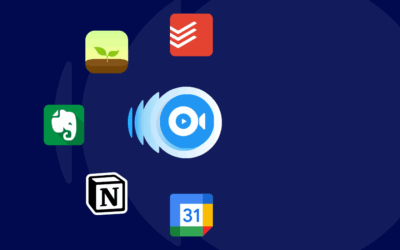Top 5 AI Tools That Are Revolutionizing Small Businesses

In today’s rapidly evolving digital economy, small businesses are increasingly relying on artificial intelligence (AI) tools to streamline operations, improve customer engagement, and gain a competitive edge. From automating customer support to analyzing data for better decision-making, AI is no longer a luxury reserved for large enterprises. It’s now a powerful, accessible asset for small business owners. Here, we explore five of the most impactful AI tools that are transforming how small businesses operate in 2025.
1. ChatGPT for Customer Support and Content Creation
One of the most revolutionary AI tools in recent years is ChatGPT by OpenAI. Small businesses are using it for a variety of tasks including customer service, social media content, email writing, and blog generation. ChatGPT can handle customer queries instantly, reducing wait times and improving customer satisfaction. For businesses that can’t afford a full-time support team, this is a game changer.
In content creation, ChatGPT helps small business owners write product descriptions, marketing emails, and even press releases. It saves time, reduces the cost of hiring copywriters, and increases output consistency.
Additionally, ChatGPT can be trained or guided using business-specific prompts, making it a personalized assistant that understands your brand tone and goals.
2. Jasper AI for Marketing and Sales Copy
Jasper AI (formerly Jarvis) is another popular AI tool among small businesses. It focuses primarily on marketing and sales copy, generating high-converting landing pages, email sequences, and ad copy within minutes. Jasper is equipped with a range of templates and tools that are tailored to various industries, which makes it especially useful for small business owners who don’t have a dedicated marketing team.
For instance, if you’re launching a new product or service, Jasper can help create entire campaigns—from awareness to conversion—using proven copywriting formulas. Its intuitive interface and customization features make it user-friendly for non-technical entrepreneurs.
3. Pictory for AI Video Creation
Video content has become crucial for online visibility and engagement. However, not all small businesses have the resources to hire video editors or production teams. That’s where Pictory comes in—a tool that transforms text-based content into professional-quality videos using AI.
Pictory can take a blog post, script, or product description and turn it into an engaging video complete with stock footage, animations, and voiceovers. Businesses use it for creating explainer videos, promotional reels, and even social media content. This not only saves time but also significantly cuts down production costs while keeping the content engaging and professional.
With video marketing on the rise, Pictory enables small businesses to stay competitive on platforms like YouTube, Instagram, and TikTok without breaking the bank.
4. Grammarly for AI-Powered Proofreading and Tone Adjustment
Good writing is essential for communication, branding, and customer trust. Grammarly uses AI to check grammar, spelling, and punctuation, but it goes much further. It also evaluates tone, clarity, and engagement—making it a powerful writing assistant for small business owners.
For businesses that frequently write client emails, proposals, and website content, Grammarly helps maintain professionalism and consistency. It also offers real-time suggestions and explanations, making it a useful tool for improving your team’s overall writing skills.
Grammarly Business, the premium version, includes team-level analytics and brand style guides, which ensures that all communications are on-brand and error-free.
5. Zoho Zia for Business Analytics and Automation
Zoho Zia is the AI-powered assistant within Zoho’s suite of business tools. Designed for small to medium-sized businesses, Zia helps with sales forecasting, email sentiment analysis, lead scoring, and workflow automation. It processes large sets of data and delivers insights in natural language, making it accessible to non-technical users.
For example, Zia can analyze customer behavior and recommend which leads to prioritize. It can automate responses to common queries or flag emails that require urgent attention. This improves efficiency, customer engagement, and ultimately, sales performance.
Zoho Zia integrates with other Zoho applications like CRM, Books, and Projects, making it an all-in-one solution for business operations and analytics.
Conclusion
AI is no longer an emerging trend—it’s a practical tool that’s reshaping how small businesses operate. Tools like ChatGPT, Jasper, Pictory, Grammarly, and Zoho Zia offer real value by saving time, reducing costs, and increasing productivity. Whether it’s automating customer support, enhancing marketing content, or extracting actionable insights from data, AI is empowering small business owners to compete on a larger scale.
By adopting the right AI tools, small businesses can stay agile, make smarter decisions, and deliver better customer experiences—all without the overhead of large teams or big budgets. In 2025 and beyond, leveraging AI will be less of an option and more of a necessity for small business success.
















